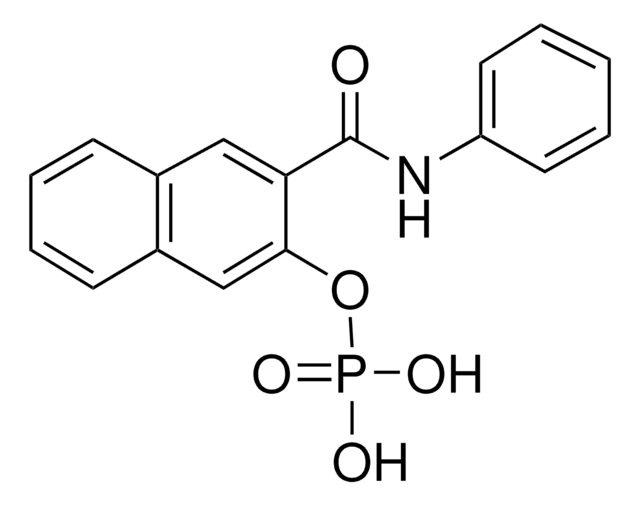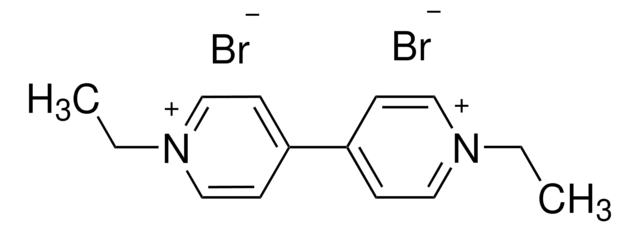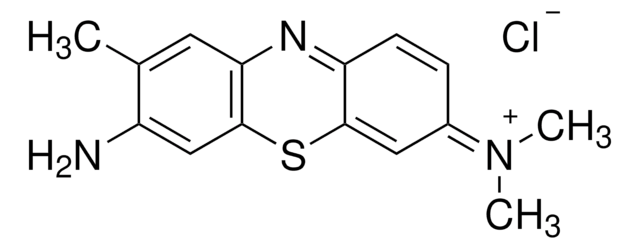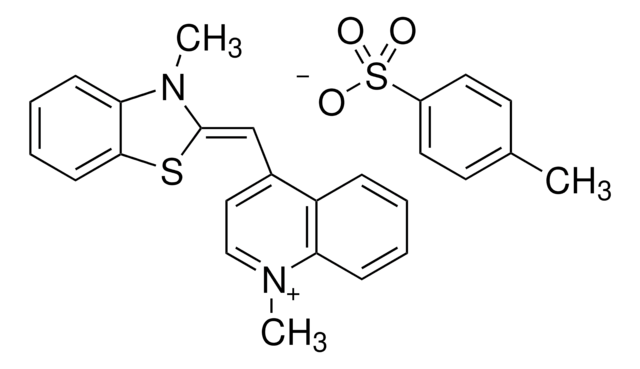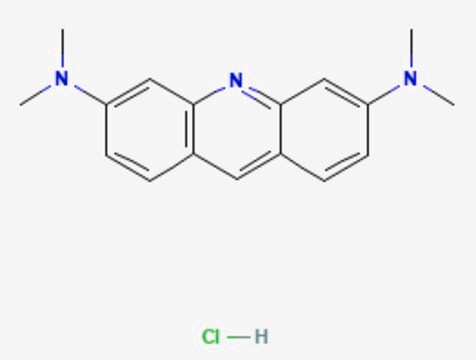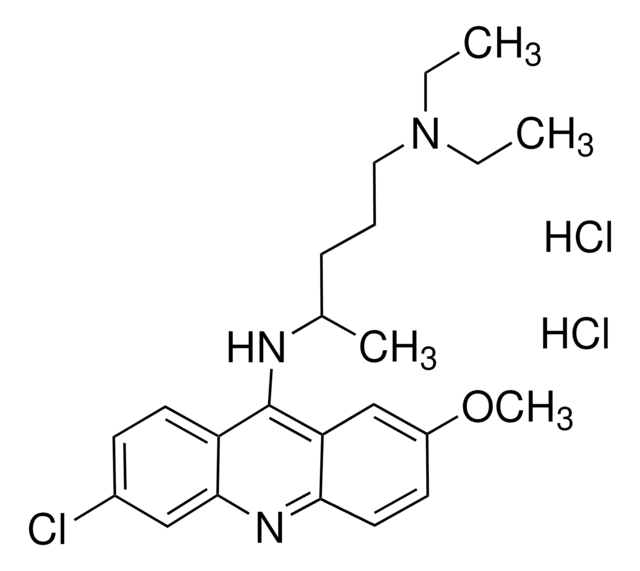P2508
Proflavine hemisulfate salt hydrate
powder
Synonym(s):
3,6-Diaminoacridine hemisulfate salt
About This Item
Recommended Products
form
powder
Quality Level
solubility
H2O: 10 mg/mL
fluorescence
λex 444 nm; λem 508 nm (0.01M HCl)
application(s)
diagnostic assay manufacturing
hematology
histology
storage temp.
room temp
SMILES string
[H]O[H].OS(O)(=O)=O.Nc1ccc2cc3ccc(N)cc3nc2c1.Nc4ccc5cc6ccc(N)cc6nc5c4
InChI
1S/2C13H11N3.H2O4S.H2O/c2*14-10-3-1-8-5-9-2-4-11(15)7-13(9)16-12(8)6-10;1-5(2,3)4;/h2*1-7H,14-15H2;(H2,1,2,3,4);1H2
InChI key
DTRLDKDFCPUGCA-UHFFFAOYSA-N
Looking for similar products? Visit Product Comparison Guide
General description
Application
Signal Word
Warning
Hazard Statements
Precautionary Statements
Hazard Classifications
Acute Tox. 4 Oral - Eye Irrit. 2 - Skin Irrit. 2 - STOT SE 3
Target Organs
Respiratory system
Storage Class Code
11 - Combustible Solids
WGK
WGK 3
Personal Protective Equipment
Choose from one of the most recent versions:
Already Own This Product?
Find documentation for the products that you have recently purchased in the Document Library.
Customers Also Viewed
Our team of scientists has experience in all areas of research including Life Science, Material Science, Chemical Synthesis, Chromatography, Analytical and many others.
Contact Technical Service



